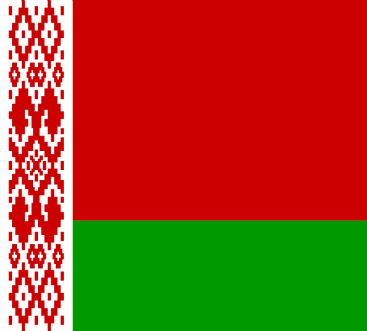Mr. Speaker, this fall, the Belarusian Government is planning to hold their second presidential elections since independence. Judging by the continuing actions of the repressive regime of Aleksandr Lukashenka, free, fair, and transparent elections–consistent with Belarus’ freely undertaken OSCE commitments–will be very difficult to achieve. Democratic elections require an all-encompassing atmosphere of trust and a respect for basic human rights. Unfortunately, recent actions in Belarus do nothing to encourage such trust.
Most recently, on March 25, Belarusian authorities cracked down on participants of the Independence Day march, arresting and beating several protestors, subsequently fining and jailing some, including Belarusian Popular Front Chairman Vintsuk Vyachorka, who received a 15-day sentence on March 29, Ales Byaletsky, head of the human rights center “Viasna”, who received a 10-day sentence, and Yuri Belenky, acting chairman of the Conservative Christian Party, who also received a 10-day sentence. Also detained and beaten was 17-year-old Dmitri Yegorov, a photojournalist for a Grodno-based, non-state newspaper.
On the day of the march, Belarusian state television accused the opposition of “seeking to draw Belarus into some bloody turmoil”, reflecting its increasingly shrill tone of late. Earlier this year, for instance, Belarusian television claimed the CIA was intensifying “subversive activity” as the presidential election draws nearer. On March 24, Belarus’ KGB chief pledged on Belarusian television to intensify surveillance of foreigners in order to prevent them from interfering in the country’s domestic matters.
On March 12, Lukashenka signed Decree #8, which essentially imposes restrictions from abroad offered to NGOs for democracy building and human rights, including election monitoring. Moreover, the Belarusian Government has claimed that the OSCE Advisory and Monitoring Group’s (AMG) domestic election observation project does not conform with the Belarusian Constitution and
Mr. Speaker, I am also concerned about recent assaults on religious communities. Last month, the Council of Ministers restricted visits by foreign clergy for “non-religious” purposes–including contact with religious and other organizations, participation in conferences and other events, or charitable activities. Government officials are also refusing to register some Reform Jewish communities because they do not have “legal” addresses. In February, state-controlled Belarusian television aired a documentary alleging Catholicism as a threat to the very existence of the Belarusian nation. And in January, leaders of Belarus’ Protestant community alleged that state newspapers carried biased articles that present Pentecostals as “wild fanatics.”
Religious freedom is not the only liberty in peril. Freedom of the press and of self-expression are also in jeopardy.
Editors of a variety of newspapers are being fined on fictitious and trumped-up charges for violating the Law on Press and Other Mass Media. Various periodicals are being confiscated and destroyed, and distributors of independent newspapers have been arrested. Youth organizations have been accused of engaging in activities that weaken the Belarusian statehood and undermining socioeconomic stability. Teenagers have been arrested for picketing and protesting, and others have been detained for distributing newspapers or pasting stickers advocating reform and calling on the authorities to solve the cases of political disappearances. Belarusian Television and Radio (BTR) has also canceled scheduled addresses to be made by potential presidential candidates or opposition leaders. The Deputy Minister of Education has ordered heads of the educational community to ban seminars conducted by the People’s University.
Lukashenka has also undertaken repressive acts against the potential presidential candidates and their families in an attempt to thwart their campaign progress.
Family members of former Prime Minister Mikhail Chigir have become the target of persecution. Chigir’s wife has been accused of interfering with the work of the police, and his son, Alexander, has been charged with large scale larceny. Chigir is not the only potential candidate whose actions have been thwarted by Lukashenka. Semyon Domash’s meeting with potential voters at the Tourist Hotel was canceled on orders from the Mogilev authorities and a director of the clubhouse of the Brest Association of Hearing-Impaired People lost her job after hosting a February 3 voters’ meeting with Domash. Vladimir Goncharik, a labor leader, has had to deal with newly state-created “unions” trying to muscle out unions supporting him. Two officials of a manufacturing plant were reprimanded by a Borisov city court for hosting a meeting between Chigir and employees at the plant.
When one looks at these and other recent actions of the Lukashenka regime, the inescapable conclusion is that the regime has created an unhealthy environment in advance of the elections. Mr. Speaker, the regime’s behavior is obviously not conducive to the promotion of free and fair elections. A few weeks ago, President Lukashenka stressed the need to establish an atmosphere of trust in bilateral Belarusian-U.S. relations. I strongly encourage Mr. Lukashenka to translate his words into concrete deeds that will encourage this trust and lead to the emergence of Belarus from its self-imposed isolation from the Euro-Atlantic community of democracies.




